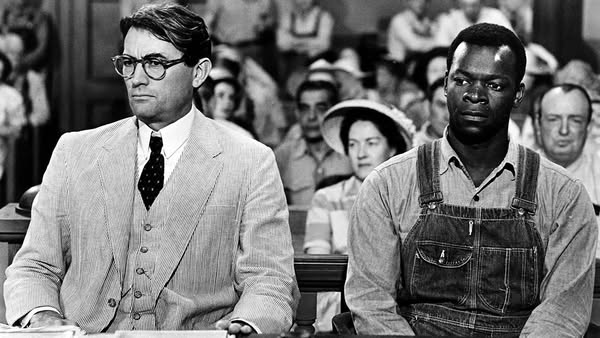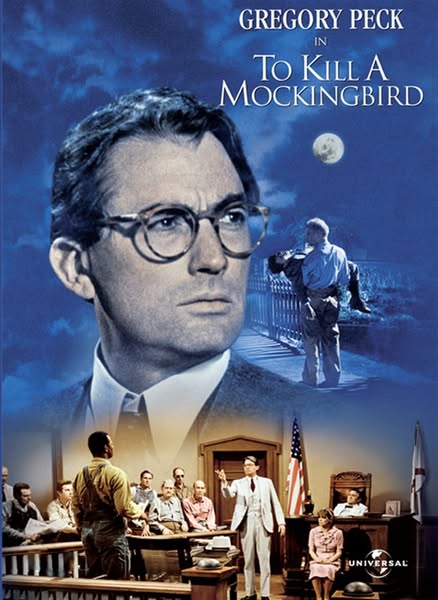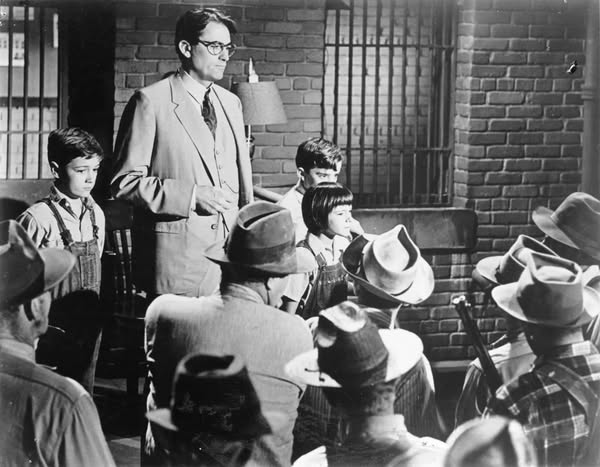To Kill a Mockingbird (1962)

To Kill a Mockingbird (1962), directed by Robert Mulligan, is a powerful film adaptation of Harper Lee’s Pulitzer Prize-winning novel. Set in the racially charged atmosphere of the American South during the 1930s, the film tells the story of Atticus Finch, a principled lawyer, and his children, Scout and Jem, as they navigate issues of morality, justice, and human dignity.
Gregory Peck delivers an iconic performance as Atticus Finch, embodying the character’s integrity, compassion, and unwavering commitment to justice. Atticus is tasked with defending Tom Robinson, a Black man falsely accused of raping a white woman, Mayella Ewell. Through the trial, the film explores themes of prejudice, empathy, and the struggle for justice in a deeply flawed society.

The narrative is primarily seen through the eyes of Scout, played by Mary Badham. Her innocent perspective provides a poignant contrast to the harsh realities of racism and societal injustice that permeate the town of Maycomb, Alabama. The bond between Scout, Jem (Philip Alford), and their father is central to the story, illustrating the values of understanding and moral courage.
Mulligan’s direction captures the essence of the novel, balancing moments of levity with the gravity of its themes. The film’s cinematography, by Russell Harlan, effectively conveys the warmth of childhood while also highlighting the darker undertones of the story. The use of black and white film adds a timeless quality, reinforcing the moral complexities faced by the characters.

The supporting cast, including Brock Peters as Tom Robinson and Robert Duvall as Boo Radley, brings depth to the narrative. Boo Radley, initially perceived as a mysterious figure, ultimately embodies the theme of understanding and compassion, reflecting the idea that people are often misunderstood.
To Kill a Mockingbird is not just a courtroom drama; it is a profound exploration of human behavior and the moral imperatives that drive individuals to stand up against injustice. Atticus Finch’s closing argument during the trial is a powerful moment that resonates with audiences, highlighting the importance of empathy and the inherent dignity of all individuals.

In summary, To Kill a Mockingbird is a landmark film that addresses critical social issues with sensitivity and insight. Its compelling performances, particularly by Gregory Peck, and its faithful adaptation of Lee’s novel have solidified its status as a classic. The film remains relevant today, serving as a poignant reminder of the ongoing struggles for justice and equality in society.











